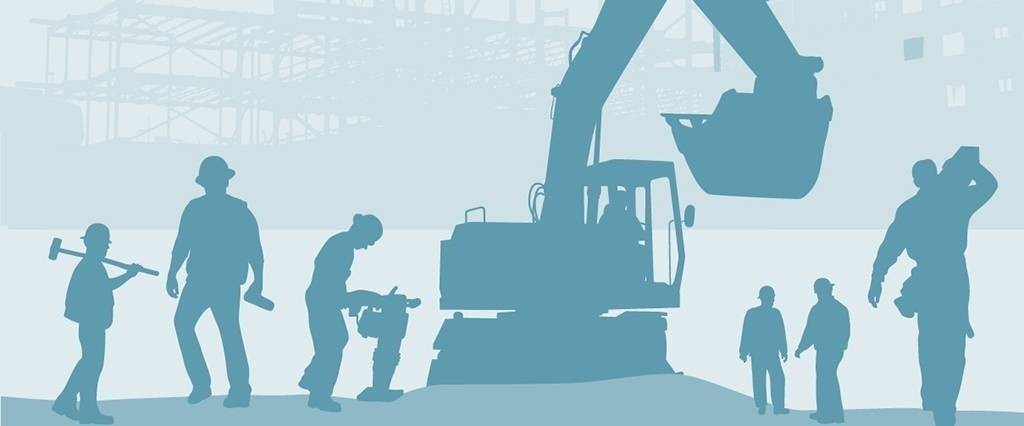საერთო ცხელი ხაზი +995 577 07 05 63


EMC responds to International Workers Day and calls on the state to establish a legislative and institutional framework focused on the protection of workers' rights, flexible mechanisms for enforcing existing legislation, and solid standards of social protection.
Majority of workers in Georgia become victims of neglect of labor legislation and violation of labor rights on a daily basis. However, in light of the ongoing pandemic, the situation significantly exacerbated. The dismissal of people without prior notice and due compensation, the forced dismissal of employees on unpaid leave, the arbitrary reduction of wages or the refusal of remuneration took a systematic form. The current situation has exposed the vulnerability of workers and the lack of fair legislative regulation, effective institutions and solid guarantees of social protection.
Violations of rights are still common in mining and heavy industries. Adherence to basic standards of labor safety and labor rights in the Tkibuli mines remains an unresolved problem, and miners risk their lives and health on a daily basis in exchange for low pay. Although, according to the state-commissioned audit report, coal mining is not permitted without the fundamental optimization of the mines, the work continues in such a way that the situation has not improved, but in some cases worsened. Workers continue to work in hazardous and unfair conditions in Chiatura and Rustavi as well, where a massive workers strike took place last year.
Ignoring labor law is a common practice in the service sector as well. Unregulated working hours, unpaid overtime work, lack of daily and weekly breaks, combination of contractual functions, and other degrading practices continue to be a challenge for consultants employed in supermarket chains. However, consultants have to work in an unsafe environment and under constant stress due to inadequate protection from aggressive clients, which led to the death of a consultant earlier this year.
The number of workers killed and injured on construction sites remain high. In 2019, 29 workers died and 54 were injured; in one case, non-compliance with occupational safety standards resulted in the death of a minor. A high-profile journalistic investigation once again confirmed the harsh working conditions in the garment factories - degrading discipline and a dangerous environment, unreasonably low pay for hard work (which is volatile and unpredictable) etc. At the same time, the work of social workers working with the most vulnerable groups remains underestimated and difficult. They do not have the necessary resources to carry out their functions, and their labor protection guarantees are very weak. Adjara Public Broadcaster has been violating labor rights and labor laws for several months now, harassing and trying to control critical journalists.
Our organization has long advocated for strengthening the labor inspection as an important mechanism for the protection of labor rights. Although an important articles of the Labor Safety Act came into force on September 1st, 2019, which authorized the agency to inspect all sectors of the economy at any time of the day, without prior notice, there is still a need for further institutional freedom of the inspection and its strengthening with human and material resources. Furthermore, today inspection only controls and monitors the physical safety of working environment, without a mandate to sanction labor rights violations, which, in the face of overcrowded courts and protracted labor disputes, makes it extremely difficult to protect workers' rights. Unfortunately, the institute of labor mediation established by the legislation in 2014 has not been operating as an effective mechanism for resolving disputes. Collective dispute case process of the Adjara Public Broadcaster demonstrated the shortcomings of the mentioned institute.
In addition to the labor rights shortcoming in the formal employment sector, the state also lacks the vision and policy to protect the rights of self-employed people. This became apparent during the recent pandemic when for the implementation of the anti-crisis social support package it became essential to know the quantity of the self-employed individuals within the country and their needs. The mentioned group, the most vulnerable of which are women involved in caregiving labor (cleaners, babysitters, caregivers), especially need the support from the state.
Unfortunately, the process of labor law reform that started in 2019, which addressed important issues such as the protection of workers' rights, the regulation of working hours, strengthening the institution of labor mediation, improving discrimination or maternity leave, internship and part-time rules got postponed indefinitely. Given the scale of labor rights violations and the shortcomings of the legislation and its enforcement tools, it is extremely important to immediately resume the process and maximize the involvement of workers in the policy drafting process.
May 1, International Workers' Day, should be used to remind the state of its commitments under the Constitution and international treaties. The state must establish the necessary legislative and institutional mechanisms to ensure appropriate conditions for decent work, so that the legal status of workers after May 1 is not as precarious as it is today.
The website accessibility instruction